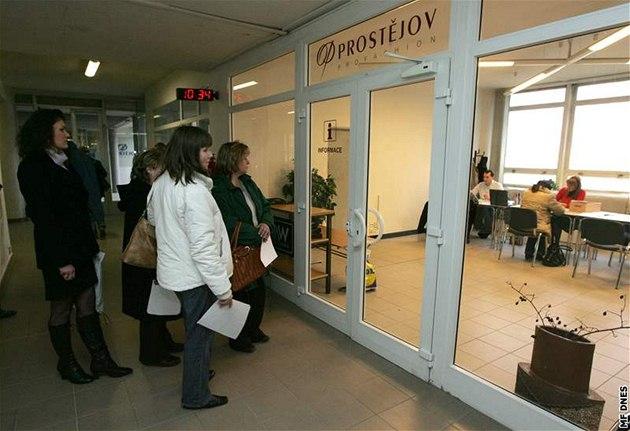OP Prostějov stopped serial production of clothes, 80 people lost their jobs<
The clothing company is in bankruptcy and faces hundreds of millions of dollars in debt. Insolvency administrator Jaroslav Svoboda claims that the costs of serial production are too high. Therefore, he decided that the company would terminate it by the end of August.
"The clothing company has its own capacity only for the production of measurements and samples. The production of samples is related to mass production, the costs are too high. Considering the volume of potential mass production orders at the price level that would correspond to the costs, and considering the year-round coverage capacities, we had to decide not to continue serial production," said Svoboda.
OP Prostějov will therefore only produce so-called measurements, i.e. tailored suits. The work thus remains for the last four hundred employees. But at the moment it is not even clear where the measurements will be sewn.
Does the textile worker have to move? Jeseník and Konice are at stake
Unofficially, there is talk of moving the workshops to abandoned buildings in Jeseník or Konice in Prostějovsk, because keeping the huge premises of the OP in Prostějov running is very inefficient.
ready-to-wear in ProstějovReady-to-wear production has a centuries-old tradition in Prostějov. The first regular factory was established here in the 1850s by Maier Mandl, and it was the first ready-to-wear factory in Europe. First Republic businessmen Arnošt Rolného and Jan Nehera can be considered the direct predecessors of today's Clothing Company. Nehera was inspired by Tomáš Bata's business and also built a network of stores. He opened the first in 1930, and by 1938 he already had over 130 across Czechoslovakia. The property was then confiscated by the Germans and in December 1945 the company was nationalized by the state based on the decree of President Edvard Beneš. In 1964, OP moved to several newly built buildings on the outskirts of the city in Vrahovice. After the Velvet Revolution, the state enterprise Oděvní průmysl Prostějov was transformed into a joint-stock company in 1991. In the privatization, 67 percent of the shares were acquired by the management and the rest by investment funds and holders of investment coupons. The business dressed Olympians and exported all over the world. | " said the president of the company unions, Helena Vyroubalová.
I feel wronged, says the head of the trade unionHelena Vyroubalová, chairperson of the OP Prostějov company trade union, has no information that further layoffs are planned. They have custom-made suits, he adds. How do you feel about the fact that mass production is ending in OP? The employees who have worked here for thirty or forty years are now unable to find a new job and are unhappy. We all feel wronged. Why do you think it turned out this way? Times are like that. The economic pressure is now being felt in other sectors as well, and if people have to save on housing and food, clothing comes last. We were destroyed by cheap competition from Asia and China. But I think that OP's products were sold even now and if mass production ends, there will be a hunger for them. What will happen next with the Clothing Company? I myself am trained in the field and I also have high school. I sewed clothes for many years, so I know how they were made. OP's trademark was quality. They told us, however, that even if you have quality goods, but one hundred percent more expensive than production from Asia and China, you will not break through. But what were we to do when clothes from the East were sold at dumped prices. Nobody did anything about it. Leather workers were the first to pay for it, then textile and clothing companies. What will happen to the dismissed employees now? They will not receive severance pay, they have been dismissed for organizational reasons. The Labor Office only paid severance pay at the time of insolvency in the spring of this year. When the company is in bankruptcy, it doesn't work. How many people actually work at OP at the moment? As of last August, about seventy-seven employees left. As of September, as far as I know, no more layoffs are planned. The production of gauges remains, where there are orders and people work. The clothing company now has about four hundred employees, including company stores. |



 Tags:
Tags: Prev
Prev







